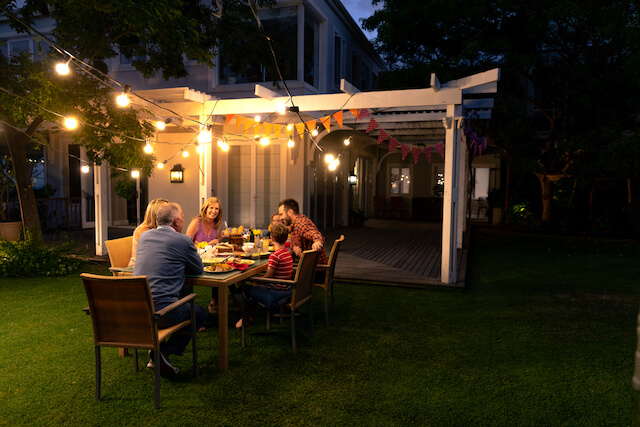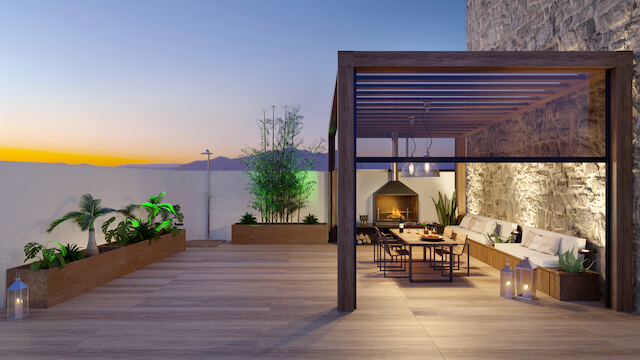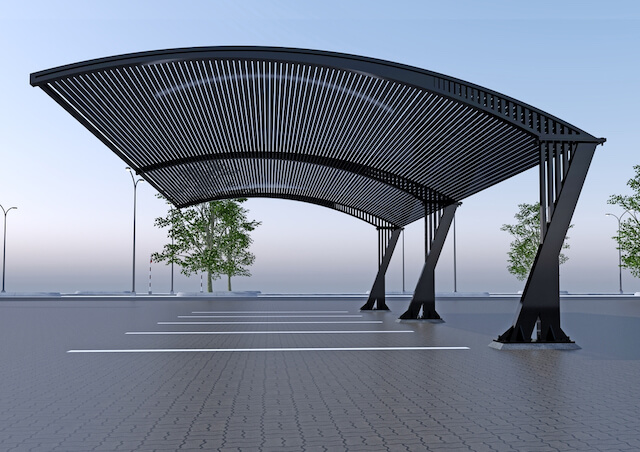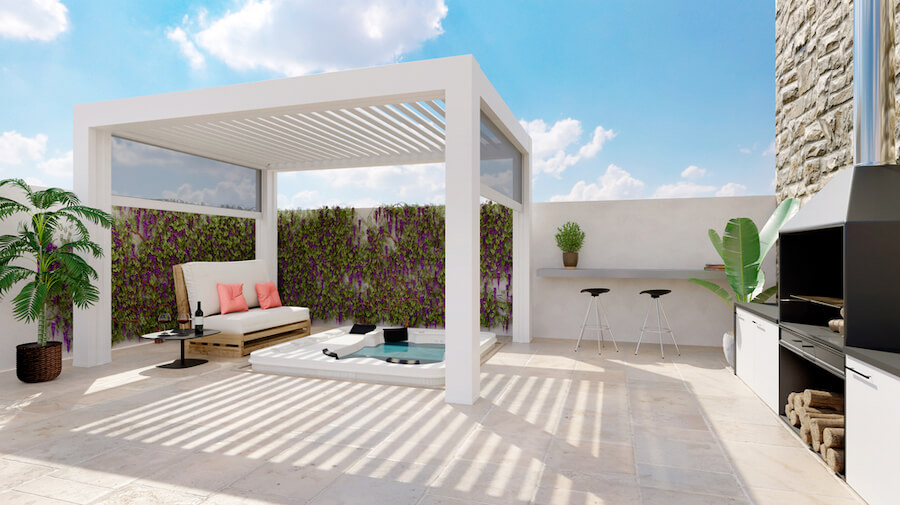A pergola is an outdoor structure that provides shade and protection from direct sunlight. It boosts the value of your property and allows you to utilize your outdoor space for fun activities, such as reading books, relaxing, chatting, etc.
Today, we will discuss “What is the etymology of pergola?” If you are interested in this topic, keep reading for more information.
Table of Contents
What Is the Etymology of Pergola?

The term “Pergola” means projecting eaves, an extended arbor, or roof. They are used to cover roads and walkways or as extensions of buildings.
Variations of Pergolas have been used since prehistoric times. Nowadays, pergolas are famous worldwide, and popular in backyards and gardens.
The Origin of ‘Pergola’
The term pergola is derived from “Pergula,” a Latin word that refers to a “projecting eave,” typically found as an extended arbor or roof.
The term’s first known use dates back to the 1640s in the late medieval period. It was used by John Evelyn at the convent of Trinita Dei Monti (Rome).
Modern pergolas are generally not crafted from the brick or stone previous generations favored.
During this period, Eastern Asia made their pergolas which featured curved beams that emulated the arched architectural design of the pagodas.
The Pergola Through the Ages
The Great Italian Renaissance, circa the 17th century, took pergolas to the next level, perhaps more for their stunning looks than their functionality.
This artistic revival period gave birth to pergolas with stone pillars that were dramatic and large.
The pergolas of the 19th and 20th centuries are most epitomized by Gertrude Jekyll, Sir Edwin Lutyens, and many other great garden designers.
Instead, materials like fiberglass and vinyl make pergolas that can last a lifetime and require little or no maintenance.
The Future of Pergolas
Throughout history, the pergola has been used to cover roads and walkways or as extensions to buildings.
They have been made as permanent structures of rock and stone. And in more modern times, fiberglass and vinyl.
Pergolas’ timeless functionality and simplicity will ensure their rightful place in years to come.
What Are the Advantages of a Pergola?

Outdoor pergolas are made for outdoor spaces. They provide shade without blocking sunlight.
Aesthetics
Pergolas come in various options, offering an aesthetic that fits any outdoor environment.
Backyard pergolas are wide and open, allowing you to grow plants around them.
If you add lattice or don’t use the pergola cover, growing climbing vines across the top is okay.
Pergola green roofs offer natural shade. If you choose to grow vines, ensure you keep them trimmed for safety reasons.
Carport
A pergola can be used as a carport for multiple cars. There are even models tall enough to pick up a truck (or more) to get under.
You can pick to keep the shade up or leave it down to showcase the vehicle.
Sun Or Shade
Pergolas allow you to choose between full sunshine or shade. Meanwhile, other outdoor structures, such as arbors or gazebos, do not deliver the same things.
You can choose from many options, so keep an open mind. Pergolas are like convertible cars but much easier to use on the top.
Gatherings
A pergolas are an ideal outdoor place where you and your friends and family can meet and gather.
They are also suitable for pool parties since they deliver a space away from the action for people who want something different.
The outdoor pergola is available in various sizes, and you can have more than one pergola if needed.
For example, you could design one for personal use, another for a picnic table, and one for grilling.
FAQs
Who Invented the Word Pergola?
The term Pergola was mentioned in 1645 by John Evelyn at the cloister of Trinità Dei Monti (Rome, Italy).
What Does a Pergola Cost?
The cost of the pergola will differ depending on the style you have chosen. Overall, the average cost is from $2,128 to $5,859 for materials and installation.
If you’re planning on building a pergola over a pre-existing patio or deck, that may also increase the cost.
- Standard: From $30 to $50 per sq. ft.
- Louvered: From $20 to $55 per sq. ft
- Smart: From $60 to $64 per sq. ft.
- Retractable: From $900 to $3,000 total.
How To Pronounce The Term Pergola?
Pergola is pronounced puh-guh-luh with British pronunciation and pr-gow-luh with American pronunciation.
You may spend as little as $1,300 for a basic design while paying as much as $10,000 for a custom build.
What Kind of Word Is Pergola?
The word pergola is Italian, from the Latin “Pergula.”
What Is the Plural of a Pergola?
It’s simply Pergolas.
What’s Another Name for Pergola?
Other words for a pergola are arbor or trellis.
What Is the Point of a Pergola Without a Roof?
Open-roof pergolas allow for sufficient air circulation and sunlight.
Do You Need a Permit to Build a Pergola?
It depends on your region. But pergolas are typically permanent structures, so permits will be required in many cases.
What Are Pergola Carports?

Pergola carports protect automobiles. They are helpful for those who do not own a covered garage.
These structures also deliver protection from debris and direct sunlight while delivering easy access to your vehicle.
When shopping for a pergola, ensure your chosen one is large enough to cover your vehicle. The structure should have the exact measurements of a garage.
Wrapping It Up
As we can see, pergolas have been around for a long time. They have found their origins and home in Egypt, France, Greece, and Asia, all corners of the world.
Thanks to their timeless simplicity and functionality, Pergolas will still have an irreplaceable position in the future.
Further Reading:

